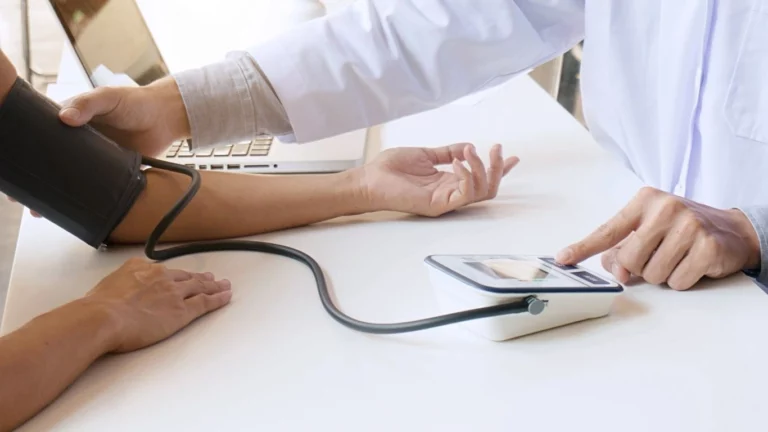Preventing Hypertension Through Weight Loss – A Comprehensive Guide
Wondering if shedding a few pounds can help prevent hypertension? It absolutely can! Let’s dive into how weight loss plays a key role in keeping your blood pressure in check and how you can get started on your journey today.
If you’re worried about your blood pressure creeping up, you’re not alone. Hypertension, or high blood pressure, affects millions of people worldwide, and it’s a big risk factor for heart disease and stroke. But the good news? One of the most effective ways to lower your blood pressure is through weight loss. Yup, that’s right—losing weight can significantly help in keeping hypertension at bay.
In this article, we’re going to explore the science behind how weight affects your blood pressure and why losing those extra pounds can help prevent hypertension. Plus, we’ll give you some practical tips to start losing weight today.

Why Weight Loss Matters for Blood Pressure
Let’s start with the basics. Your blood pressure is determined by how much blood your heart pumps and how much resistance your blood vessels offer. When you’re overweight, your body needs more blood to supply oxygen and nutrients to tissues. This increases the amount of blood flowing through your vessels, raising your blood pressure.
Moreover, excess fat—especially around your abdomen—can increase the production of substances that elevate your blood pressure. It’s like carrying around extra weight that your body doesn’t need and that makes your heart work harder. As a result, the more you weigh, the harder your heart has to work, which can lead to hypertension.

How Much Weight Do You Need to Lose?
The great thing about weight loss is that you don’t have to drop a massive amount of weight to see improvements in your blood pressure. In fact, even a modest weight loss can have a positive effect.
Studies have shown that losing just 5 to 10% of your body weight can help lower your blood pressure. For example, if you weigh 200 pounds, losing 10-20 pounds could make a noticeable difference in your blood pressure. That’s definitely doable, right?
Tips for Losing Weight to Prevent Hypertension
Alright, now that we know weight loss is key, let’s look at some practical ways to start shedding those pounds and keeping your blood pressure under control.

1. Eat a Heart-Healthy Diet
A healthy diet is essential for both weight loss and managing your blood pressure. Focus on whole, nutrient-dense foods like fruits, vegetables, lean proteins, and whole grains. The DASH (Dietary Approaches to Stop Hypertension) diet is a popular choice for people with high blood pressure. It emphasizes foods that are low in sodium, high in potassium, calcium, and magnesium—important nutrients for maintaining healthy blood pressure.
Also, try to cut back on foods that are high in sodium, processed sugars, and unhealthy fats. These foods can contribute to weight gain and raise your blood pressure.
2. Get Active
Exercise is a double win when it comes to managing weight and blood pressure. Regular physical activity helps you burn calories and lose weight, but it also improves your cardiovascular health and can help reduce high blood pressure.
Aim for at least 150 minutes of moderate exercise per week, like brisk walking, cycling, or swimming. Even something as simple as taking a walk after dinner can make a big difference.
3. Watch Your Portions
It’s easy to overeat, especially if you’re eating high-calorie foods. Paying attention to portion sizes can help you avoid consuming too many calories. Using smaller plates, checking serving sizes, and being mindful of when you’re full are all great strategies to prevent overeating.
4. Reduce Stress
Stress can negatively impact both your blood pressure and your weight. When you’re stressed, your body releases hormones like cortisol that can trigger weight gain and raise your blood pressure. Finding ways to manage stress—whether it’s through relaxation techniques, deep breathing, meditation, or yoga—can help you in both preventing hypertension and supporting your weight loss goals.
5. Stay Consistent
Consistency is key! Losing weight and keeping your blood pressure in check is a marathon, not a sprint. Set realistic goals and stay committed. Track your progress, celebrate small wins, and don’t be too hard on yourself if you hit a plateau. Slow, steady weight loss is the healthiest way to go, and it’ll pay off in the long run.
How Does Losing Weight Impact Hypertension?
Now that we’ve covered some ways to lose weight, let’s talk about how exactly losing weight can help your blood pressure. When you lose weight, your body’s circulation improves, which reduces the strain on your heart and arteries. The less weight you carry, the easier it is for your heart to pump blood, which directly lowers your blood pressure.
Additionally, weight loss reduces inflammation in the body and helps improve your kidney function. Both of these factors contribute to regulating your blood pressure. For many people, weight loss can even mean that they no longer need medication for high blood pressure!

Conclusion
Weight loss is one of the most effective strategies for preventing hypertension. By losing even a modest amount of weight, you can significantly reduce your risk of developing high blood pressure and improve your heart health. Start by focusing on a balanced diet, regular exercise, portion control, and stress management.
The journey might take time, but the benefits are worth it. Not only will you lower your blood pressure, but you’ll also feel healthier and more energetic overall. Ready to take the first step? Your heart will thank you for it!
Appendices
FAQs
- How much weight should I lose to lower my blood pressure?
Losing just 5-10% of your body weight can make a significant difference in lowering your blood pressure. For example, if you weigh 200 pounds, losing 10-20 pounds can help lower your blood pressure. - Can I lose weight without exercise?
While exercise plays a huge role, it’s still possible to lose weight through dietary changes. However, combining a healthy diet with regular exercise is the most effective approach. - What kind of exercise is best for lowering blood pressure?
Aerobic exercises like walking, cycling, swimming, and running are great for improving cardiovascular health and lowering blood pressure. Strength training also helps but should be balanced with cardio. - Can I lower my blood pressure with diet alone?
Yes, dietary changes can help lower blood pressure. The DASH diet, which emphasizes fruits, vegetables, lean proteins, and whole grains, is particularly effective in managing blood pressure. - Is weight loss enough to prevent hypertension?
While weight loss is a major factor, maintaining a healthy lifestyle that includes regular exercise, stress management, and a heart-healthy diet is key to preventing hypertension.
References
- American Heart Association (2024). Weight and Hypertension: How Losing Weight Can Lower Blood Pressure. Read Article
- National Institutes of Health (2024). Hypertension Prevention and Weight Loss. Read Article
- Smith, J., & Lee, R. (2023). Impact of Weight Loss on Hypertension: A Longitudinal Study. Read Article
Disclaimer: The information provided in this article is for educational purposes only and is not intended as medical advice. Always consult with your healthcare provider before making any significant changes to your diet or exercise routine. Individual needs may vary, and professional guidance is crucial for personalized care.

Dr. Gwenna Aazee is a board-certified Internal Medicine Physician with a special focus on hypertension management, chronic disease prevention, and patient education. With years of experience in both clinical practice and medical writing, she’s passionate about turning evidence-based medicine into accessible, actionable advice. Through her work at Healthusias.com, Dr. Aazee empowers readers to take charge of their health with confidence and clarity. Off the clock, she enjoys deep dives into nutrition research, long walks with her rescue pup, and simplifying medical jargon one article at a time.







